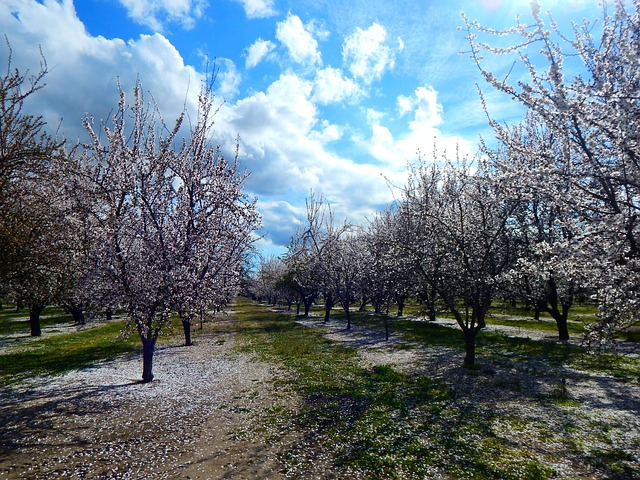December 19, 2017
Real Estate Investment Trust (REIT) Gladstone Land announced it has acquired a California organic almond orchard for $5.9 million. At the same time, the company announced that it has successfully expanded its current credit facility arranged with Metropolitan Life Insurance Company from $200 million to $275 million.
“We are pleased to announce the addition of another almond orchard to our farmland portfolio,” said Bill Reiman, western managing director, Gladstone Land. “This farm is 100 percent organic and is currently in peak production, which should ensure excellent returns for us in the coming years.”
This deal brings Gladstone’s farmland portfolio to 73 farms totaling 63,014 acres across nine U.S. states, carrying a value of $534 million. The majority of the portfolio consists of fresh produce annual row crops such as vegetables and berries, along with a growing range of permanent crops includes pistachios, almonds, and blueberries.
At the same time, the company announced that it has successfully expanded its current credit facility arranged with Metropolitan Life Insurance Company from $200 million to $275 million.
“We are happy to continue our strong relationship with MetLife,” said Jay Beckhorn, treasurer of Gladstone Land. “MetLife has been a long-standing lending partner for us and has helped us every step of the way.”
Once the deal is closed, Gladstone will enter into a 20-year, triple-net sale-leaseback agreement with a local operator that will call for fixed cash rent and will include a variable rent aspect that will be based on the annual gross crop revenues earned by the operation.
“We have a long-term lease in place with a tenant whom we have a strong and established relationship with,” said Reiman. “We are always willing to help our current tenant-partners with their farmland needs.”
Organic Growth
This deal marks the second recent addition of an organic property to Gladstone’s portfolio following its purchase of a 746-acre organic apple, grape, and cherry operation located in Walla Walla, Washington, in September for $9.5 million.
Organic sales on the U.S. market reached $47 billion last year, according to the 2017 Organic Industry Survey conducted by the Organic Trade Association. Of all organic categories, organic food sales saw the greatest increase – jumping by $3.3 billion or 8.4 percent over the previous year; but more importantly – of all organic foods, organic fruits and vegetables accounted for 40 percent of all sales.
Additionally, on the same day that Gladstone announced its purchase of the Walla Walla property, news was published of a new breakthrough study directed by Northeastern University in collaboration with The Organic Center that found that soils on organic farms stored significantly larger amounts of carbon for longer periods of time compared to soils on traditional farms. On average, soils from organic farms were found to have 44 percent higher levels of humic acid – the soil component that stores carbon in the long term.
Furthermore, Food Dive reports that TechSci Research expects the global organic food market will see a compounded annual growth rate (CAGR) of 14 percent between now and 2021, and a report issued by the Organic Trade Association in March of this year found that organic food sales in the U.S. topped $40 billion per year in 2016, and that more than 80 percent of U.S. kitchens now contain organic food items.
Armed with these numbers and newly released data, Gladstone is able to gain exposure to the organic segment by acquiring established organic fruit and vegetable operations with multi-year leases, without having to invest the multiple years and capital associated with transitioning mainstream farmland to organic production.
“We are excited to add another organic, high-yielding farm to our farmland holdings,” said David Gladstone, president and CEO of Gladstone Land, in a press release announcing the purchase of the organic almond orchards. “Recently, pricing for organic almonds has been at a premium of more than 100 percent over that of conventional pricing, with forecasted demand continuing to outpace supply.”
Indeed, almond handlers at the 2015 Almond Conference noted that producers of organic almonds can realistically expect twice the going rate for traditionally produced almonds.
“Our hope is that the additional income from this new almond orchard and the added ability to acquire more farms from the facility expansion will allow us to continue to increase the distributions we pay to our shareholders.”
-Lynda Kiernan

Let GAI News inform your engagement in the agriculture sector.
GAI News provides crucial and timely news and insight to help you stay ahead of critical agricultural trends through free delivery of two weekly newsletters, Ag Investing Weekly and AgTech Intel.




